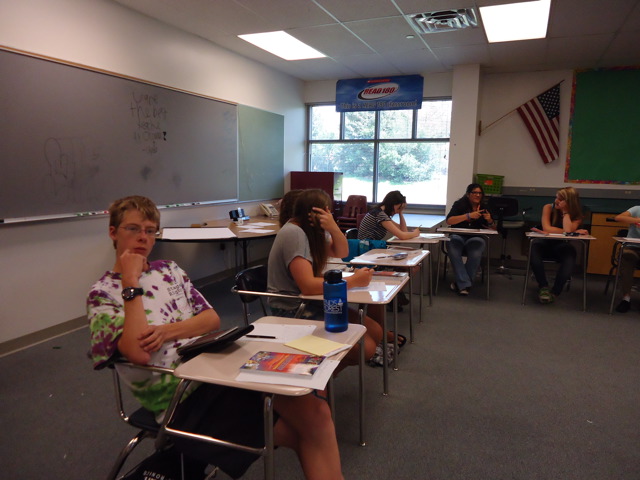
Leadership Students
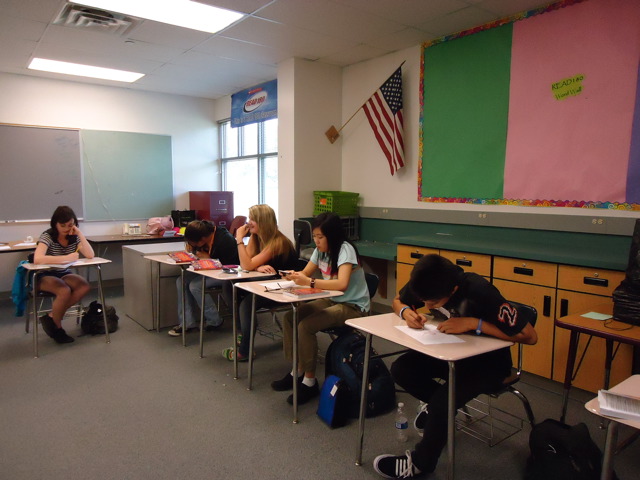
Hard at Work

9-12 Grade Students in Mastery of Leadership
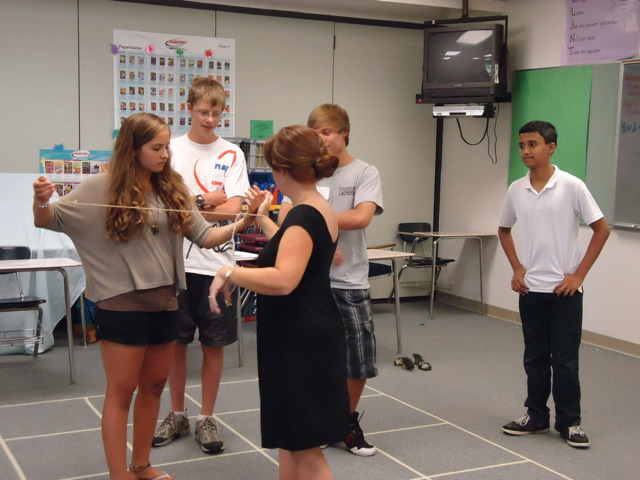
Annette and Allegra Demonstrating an Activity
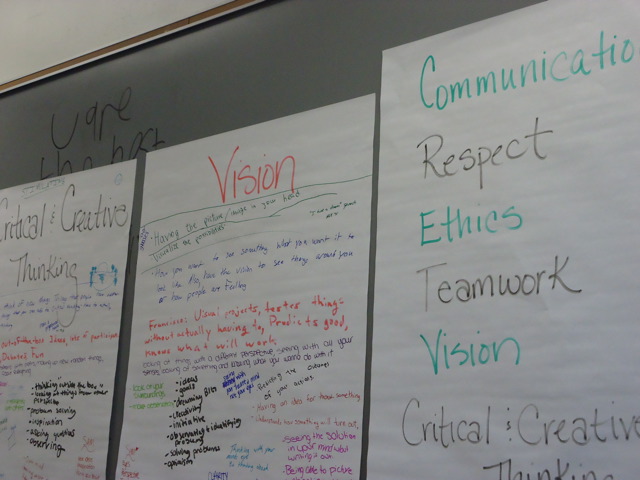
Class Discussion Notes on the Board
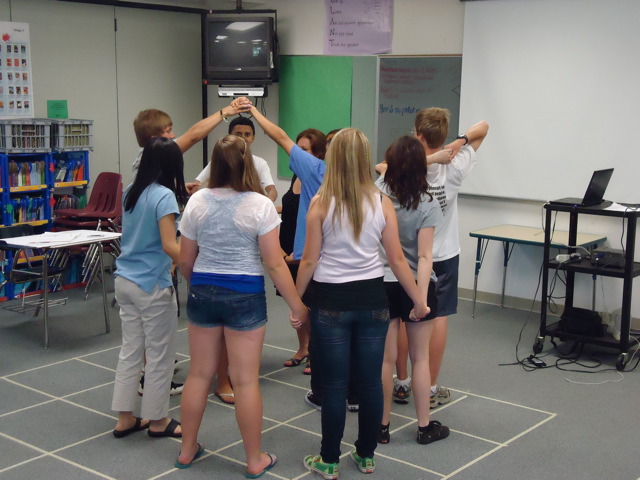
The Human Knot

Beginning of the Human Knot
The achievement gap between low- and high-income students is 30-40 percent higher for students born in 2001 than those born 25 years earlier, according to the National Summer Learning Association. The stigma of summer school is changing as experts find that summer learning losses continue to divide opportunities between low- and high- income students and that students can’t afford to unlearn knowledge every summer as our world standing in education continues to slip.














